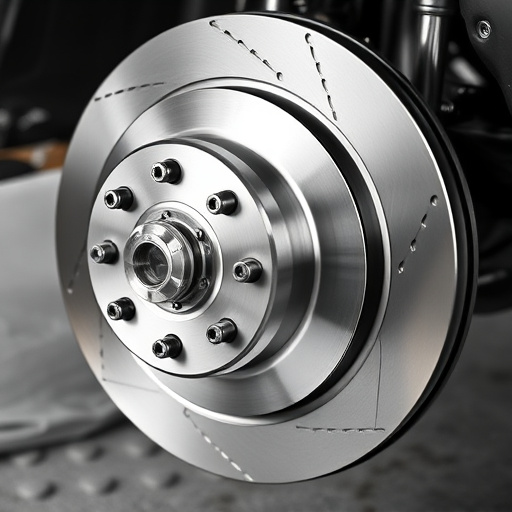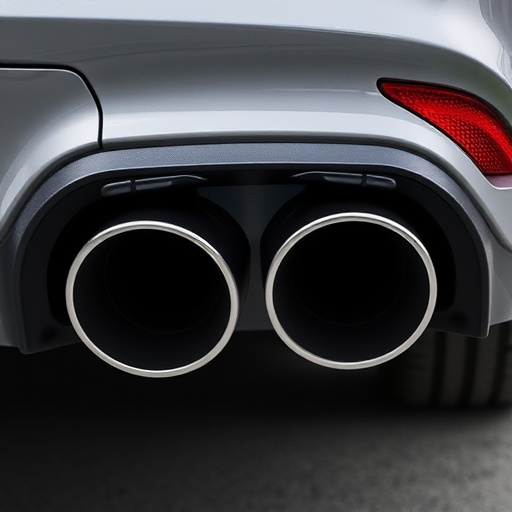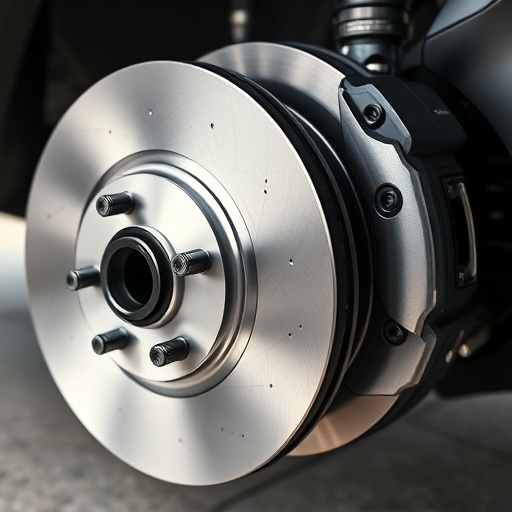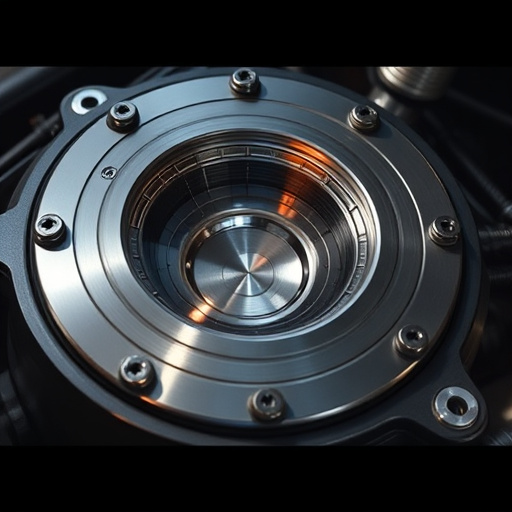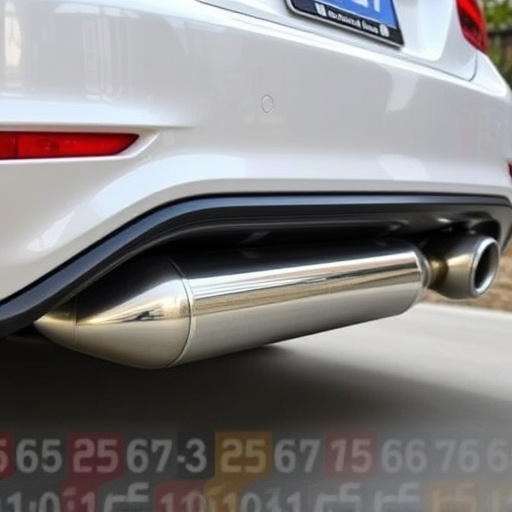Universal catalytic converters are a revolutionary technology in emissions control, converting harmful gases like NOx and CO into less toxic compounds. Integrated into muffler tips, they ensure optimal performance and cleaner air quality, appealing to automotive enthusiasts. As a key component in fighting vehicle-related pollution, these converters significantly reduce emissions, benefit public health, and protect ecosystems. Their adoption signals progress towards a greener future, with potential applications in commercial vehicles and industrial machinery. Ongoing research aims to enhance efficiency, compactness, and affordability.
Discover the revolutionary Universal Catalytic Converter (UCC)—a game-changer in environmental technology. This innovative system promises significant environmental benefits by reducing emissions across various vehicles and industries. This article explores the UCC’s functionality, its profound impact on air quality, and its potential to shape a cleaner future. From understanding its mechanisms to examining implementation strategies, we delve into how universal catalytic converters could be the key to a greener world.
- Understanding Universal Catalytic Converters
- Environmental Impact and Benefits
- Implementation and Future Prospects
Understanding Universal Catalytic Converters
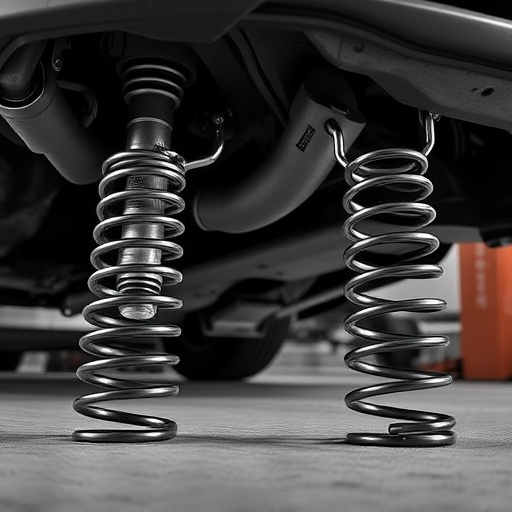
Universal catalytic converters are revolutionary components designed to offer a comprehensive solution for environmental emissions control. Unlike traditional converters that are specific to certain vehicle types or engine configurations, universal catalysts are engineered to fit a wide range of exhaust systems and vehicles. This versatility makes them a popular choice among automotive enthusiasts seeking high-performance parts without compromising on environmental benefits.
These advanced devices incorporate specialized catalyst materials that efficiently convert harmful exhaust gases into less toxic compounds. By reducing pollutants like nitrogen oxides (NOx), particulate matter, and carbon monoxide (CO), universal catalytic converters play a crucial role in minimizing the environmental impact of vehicles. Moreover, their integration into exhaust systems, including muffler tips, ensures optimal performance while promoting cleaner air quality.
Environmental Impact and Benefits
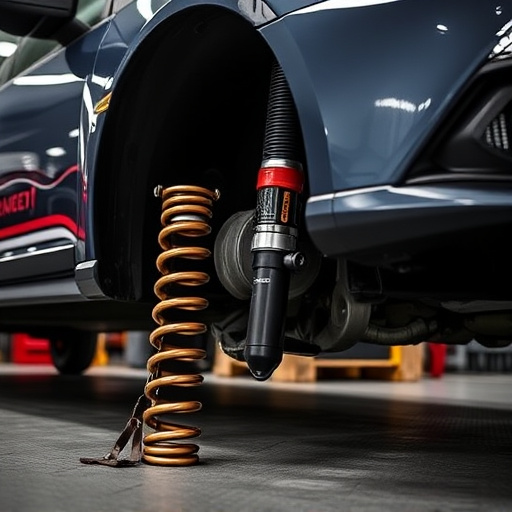
The universal catalytic converter plays a pivotal role in mitigating environmental pollution caused by vehicles, making it an essential component for any eco-conscious automotive enthusiast. By facilitating the conversion of harmful gases like carbon monoxide and nitrogen oxides into less toxic substances, these converters significantly reduce the overall emission levels of vehicles. This, in turn, contributes to cleaner air quality, which is a primary concern in densely populated urban areas where vehicle traffic is high.
Moreover, the adoption of universal catalytic converters can lead to substantial long-term environmental benefits. By reducing pollutants, these devices help protect ecosystems and preserve biodiversity, as less toxic emissions mean a healthier environment for both terrestrial and aquatic life. Additionally, the improved air quality associated with catalytic converters can have positive public health impacts, leading to fewer respiratory and cardiovascular issues among residents of cities with high vehicle traffic. This demonstrates that a seemingly small automotive part like a universal catalytic converter can contribute to a vast array of environmental advantages, especially when considered in the context of performance exhaust, air intake systems, and intake components as part of a holistic approach to cleaner transportation.
Implementation and Future Prospects

The implementation of universal catalytic converters holds immense promise for a greener future. As these advanced devices find their way into more vehicles, we can expect significant improvements in air quality and a reduction in environmental impact. This technology offers a uniform approach to pollution control, eliminating the variability associated with different vehicle models and regions. With further research and development, it is foreseeable that catalytic converters will become even more efficient, compact, and cost-effective.
Looking ahead, the integration of these converters could revolutionize not just transportation but also other industries. For instance, their application in commercial vehicles and industrial machinery could lead to substantial cuts in emissions from heavy-duty suspension components, including coilover kits and brake systems. This shift towards universality and efficiency presents an exciting prospect for a sustainable tomorrow, where environmental benefits are no longer limited to specific sectors but become a unified goal across various aspects of our lives.
Universal catalytic converters represent a significant advancement in environmental technology, offering a more efficient and eco-friendly solution for reducing harmful emissions. By providing substantial environmental benefits, these converters not only contribute to cleaner air but also pave the way for a greener future. As research continues, the potential for universal adoption and further innovation holds promise for a more sustainable transportation sector.









